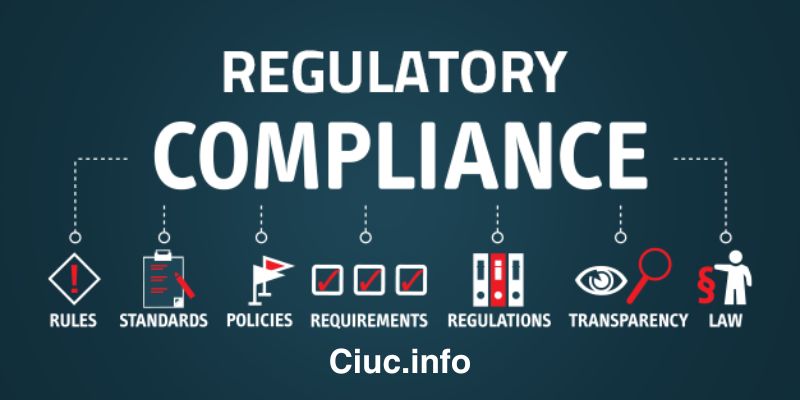Have you ever aspired to learn how to become a real estate developer? Real estate development is an exciting and potentially lucrative field that involves creating and managing real estate projects, from residential housing to commercial properties. It’s a career path that combines elements of finance, construction, design, and entrepreneurship. If you’re interested in entering the world of real estate development, this comprehensive guide at Ciuc will walk you through the essential steps to achieve your goals.
How to Become a Real Estate Developer
1. Education and Knowledge
The journey to becoming a real estate developer begins with a solid educational foundation. While there isn’t a strict requirement for a specific degree, a background in fields such as real estate, architecture, finance, or business can be immensely beneficial. These fields provide a strong knowledge base for understanding the intricacies of real estate development.

To become a real estate developer, you must understand the dynamics of the industry, including market trends, investment strategies, and legal aspects. Continuously educate yourself by taking courses or attending workshops related to real estate development. This knowledge will serve as the cornerstone of your career.
2. Gaining Practical Experience
Just like any other profession, practical experience is invaluable when learning how to become a real estate developer. Starting in entry-level positions within the real estate industry can help you grasp the fundamentals. Consider roles such as a real estate agent, property manager, or construction project manager to familiarize yourself with the industry’s workings.

Furthermore, internships or employment with established real estate developers can provide a unique learning experience. It exposes you to the intricacies of real estate development, allowing you to observe how projects progress from concept to completion. Moreover, it offers the chance to build essential connections with experienced professionals in the field.
3. Building a Strong Network
Networking is the lifeblood of the real estate development industry. To succeed in this field, you must establish meaningful relationships with individuals who can support your career growth. Attend industry events, join real estate associations, and participate in local business groups to broaden your network.
These connections can lead to valuable partnerships and investment opportunities. Whether you’re seeking financial backers, experienced contractors, or legal counsel, your network can be an invaluable resource for finding the right people to work with on your projects. How to become a real estate developer is not just about what you know but also who you know.
4. Financial Resources
Real estate development often necessitates substantial financial resources. Acquiring the capital to fund your projects is a critical aspect of the journey. You may need to save money, secure loans, or attract investors willing to finance your ventures.
Understanding real estate finance is pivotal. It’s essential to be proficient in financial modeling, budgeting, and risk assessment. A robust financial background allows you to make informed decisions about project feasibility and profitability.
5. Market Research
One of the key aspects of learning how to become a real estate developer is conducting comprehensive market research. Identify the geographic area or market where you plan to develop real estate. Thoroughly understanding the local real estate market is crucial to making informed investment decisions.
Market research involves analyzing demand, trends, competition, and potential opportunities. The goal is to identify areas with growth potential and unmet needs. By doing so, you can strategically position your developments to meet market demand, increasing your chances of success.
6. Developing a Solid Business Plan
A well-structured business plan is the roadmap for your journey on how to become a real estate developer. It outlines your goals, strategies, financial projections, and risk assessment. Your business plan is the foundation on which you’ll secure financing and partnerships, so it’s critical to invest time and effort in its development.
Your business plan should include:
- Detailed project descriptions
- Budget estimates
- Timelines for completion
- Marketing and sales strategies
- Risk analysis and contingency plans
A robust business plan will not only guide you but also provide confidence to potential investors and partners, showcasing your commitment and professionalism.
7. Legal and Regulatory Compliance
Understanding and complying with local zoning laws, building codes, and regulations is paramount in the real estate development process. Failure to adhere to these laws can lead to costly delays, legal issues, and even project termination.

Navigating the regulatory landscape is a complex but essential aspect of how to become a real estate developer. It requires working closely with legal professionals who specialize in real estate development to ensure that your projects meet all legal requirements.
8. Property Acquisition
Acquiring suitable land or existing properties is a critical step in your journey to becoming a real estate developer. This involves negotiation, due diligence, and careful selection. The properties you choose must align with your development goals, location, and market research findings.
Careful consideration should be given to the property’s location, condition, and potential for future development. Negotiating favorable deals and conducting thorough due diligence, including property inspections, title searches, and environmental assessments, is crucial to avoid potential pitfalls.
9. Design and Planning
Once you’ve acquired a property, the design and planning phase begins. Collaborate with architects, engineers, and other professionals to create detailed project plans. These plans should include architectural drawings, project timelines, and budget estimates.
Effective project planning ensures that your developments are not only visually appealing but also practical and cost-effective. It also helps manage your construction process efficiently and within budget.
10. Financing and Investment
Securing funding for your projects is an essential step in becoming a real estate developer. This can involve various financing sources, including personal savings, investors, loans, or partnerships.
Understanding the financial aspects of your developments is crucial. You must be capable of creating financial models, assessing project feasibility, and communicating your investment strategy to potential financiers. Demonstrating a strong understanding of the financial aspects of your projects can instill confidence in those considering investing in your developments.
Conclusion
Becoming a real estate developer is a multifaceted and rewarding journey that combines education, experience, financial acumen, and networking. It’s a challenging yet fulfilling career that requires dedication and a willingness to learn from both successes and failures. By following the steps outlined in this guide, you can work towards achieving your dream of becoming a successful real estate developer.
